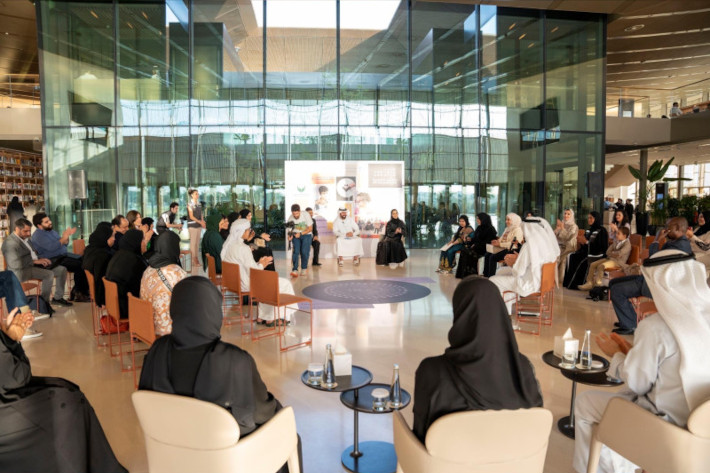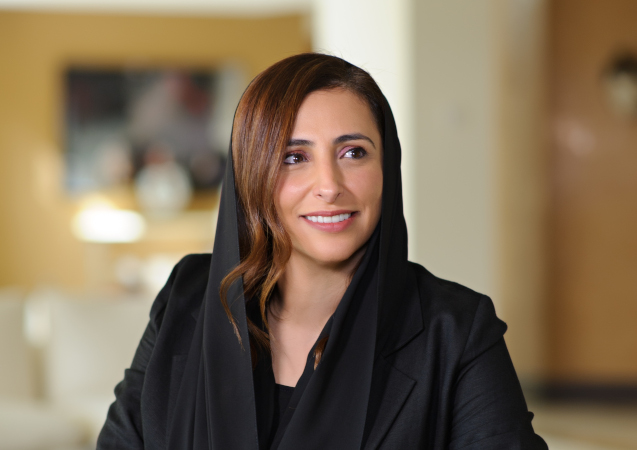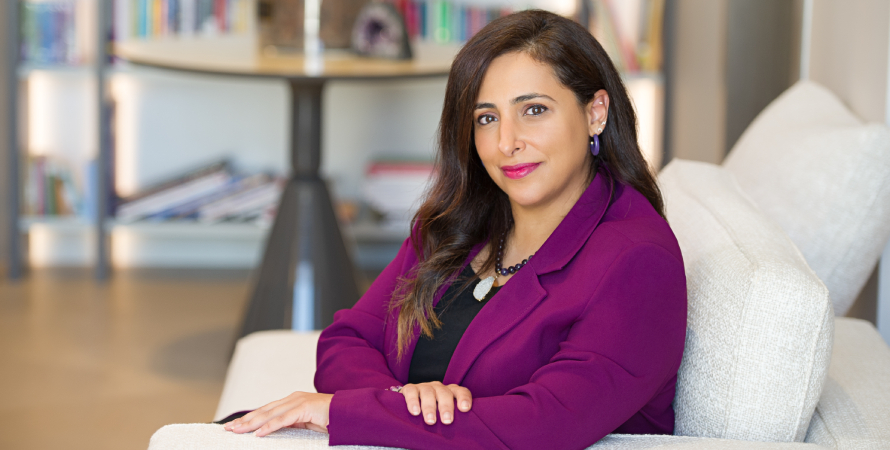 Date Posted 27 Feb 2023
Date Posted 27 Feb 2023
Kalimat Foundation's "ARA Initiative" organized an inclusive discussion circle at the House of Wisdom in Sharjah yesterday (Sunday) to advance the implementation of the 'Marrakesh Treaty' provisions administered by the World Intellectual Property Organisation (WIPO). As the first non-profit in UAE to obtain a license under the treaty, Kalimat Foundation (KF) can legally reproduce, distribute and make copies of published works available in accessible formats for the blind, visually impaired, and print-disabled without violating copyright.
The inclusive discussion circle hosted Sheikha Jameela bint Mohammed Al Qasimi, President of Sharjah City for Humanitarian Services, and ARA Initiative’s new sponsors “Sharjah Charity International” and “Sharjah Islamic Bank”, and it aimed at exchanging ideas on the best practices to expand the options of publishing accessible books for blind and visually impaired children and youth and enabling them to access sources of knowledge.
The event was moderated by journalist Dr. Abdul Salam Al Hammadi from the Sharjah Broadcasting Authority, along with Mrs. Reem Jassim, Manager of Special Initiatives at Kalimat Foundation, and Dr. Muhammad Mustafa al-Nabali, supervisor of the education system at the Royal Academy for the Blind in Jordan, and took place in the presence and participation of a number of representatives of cultural and social entities and institutions, including Sharjah City for Humanitarian Services, the Emirates Schools Establishment, Emirates Association of the Visually Impaired, in addition to publishing houses and blind and visually impaired youth, their sighted peers and their parents.
On the sidelines of the discussion, KF signed a memorandum of understanding with the “Sharjah Charity International” and “Sharjah Islamic Bank” to sponsor ARA initiative’s new phase, and support its efforts to produce and distribute a wide collection of accessible books for the Arab blind and visually impaired children and youth around the world.
Quenching the print-disabled’s thirst for knowledge
In her feedback on the discussion, H.E. Sheikha Jameela bint Mohammed Al Qasimi, President of Sharjah City for Humanitarian Services (SCHS), emphasized the need for collaborative efforts from various entities to provide accessible books to the blind and visually impaired. This is crucial for inclusive education and enhancing the quality of care for children and youth with visual disabilities, aligning with Sharjah's comprehensive vision.
Sheikha Jameela Al Qasimi remarked, "Thousands of children and youth who are visually impaired due to health reasons are fully capable of acquiring knowledge and expanding their intellect. This challenge has motivated many blind individuals to excel in various fields and contribute to community development in the long-term."
Amna Al Mazmi, Manager of KF, stated, "Our initiatives to provide greater access to knowledge resources for the blind and visually impaired can have a more significant impact through new partnerships and collaborations with various entities. By doing so, we maximize the potential of the Marrakesh Treaty license, which allows us to
reproduce books in accessible formats and increase the number of books accessible to the blind and visually impaired. We will continue to engage more entities and publishing houses to fulfill children and youth's thirst for knowledge."
The discussion’s results and uniting the humanitarian vision
The discussion focused on three main pillars. The participants delibrated over the types of books and titles that blind people need. They also discussed the best accessible format that enables blind and visually impaired to make the most of those books. Finally, the participants presented ideas and visions on workshops, events and activities targeting that segment to instil a culture of reading in them.
Enhancing the implementation of Marrakesh Treaty terms and provisions
During the discussion, a number of participants suggested some ideas that enhances the access to sources of knowledge for the blind and visually impaired, including encouraging the teaching of Braille abbreviations, which would allow the blind and visually impaired to read more books in a shorter time, and increasing the production of audiobooks to serve the children who lost their sight at an advanced age and were unable to master reading in Braille.
Several participants proposed broadening collaboration efforts to enable visually impaired individuals to access a diverse selection of books, with a particular focus on upper-level students and considering their age and academic level. They recommended producing printed materials that include stories and biographies of both historical and contemporary figures, which can serve as sources of motivation and inspiration for blind individuals. The adoption of these stories could potentially bolster the confidence of visually impaired individuals and equip them with the tools to overcome life's obstacles.
After obtaining the Ministry of Economy’s authorisation to make the most of the terms of the Marrakesh Treaty last year, KF signed three MoUs with the Emirates Association of the Visually Impaired, House of Wisdom and Sharjah Public Libraries, to provide books in accessible formats for the visually impaired.


